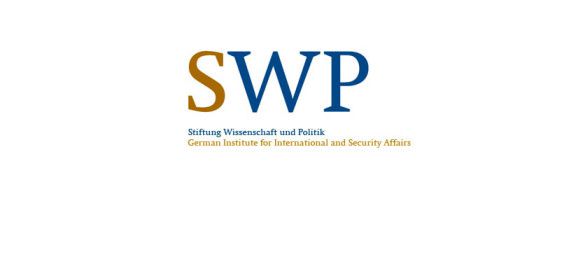Section: German Institute for International and Security Affairs (Germany)
The War in Ukraine and Its Impact on Syria
In Syria, the immediate effects of the war in Ukraine have made an already difficult humanitarian situation even worse. Protracted violence in Ukraine or an expansion of the Ukraine war into a larger NATO-Russia confrontation would endanger multilateral cooperation on conflict management, conflict resolution and humanitarian issues in Syria....
Rethinking Strategic Sovereignty
The Russian war of aggression against Ukraine is forcing Europeans into a confrontational security order. This also makes European strategic sovereignty – in defence policy, but also in economics, technology, energy policy, and institutional framework – a more significant goal for the European Union (EU). Until now, however, a central narrative...
Finland wants to use the “NATO option”
Russia’s attack on Ukraine has changed Finland’s security policy calculations. After the end of the Cold War, two principles were essential for Finnish foreign and security policy: maintaining good relations with Russia on the one hand, and a strong national defence capability on the other hand. The country wanted to be prepared for...
Finnland will die »Nato-Option« einlösen
Der Angriff Russlands auf die Ukraine hat Finnlands sicherheitspolitisches Kalkül verändert. Nach dem Ende des Kalten Krieges war es für die finnische Außen- und Sicherheitspolitik essentiell, zwei Prinzipien aufrechtzuerhalten: gute Beziehungen zu Russland bei gleichzeitig starker Landesverteidigung. Das Land wollte mit Blick auf den östlichen...
Russia on the Road to Dictatorship
The invasion of Ukraine on 24 February 2022 has catapulted Russia from hard autocracy into dictatorship. The relationship between state and society is growing increasingly totalitarian. This is no bolt from the blue: Today’s wartime censorship and repression are based on laws passed successively since the early 2010s. Vladimir...
Völkerrechtliche Verbrechen im Krieg gegen die Ukraine
Völkerrechtsverbrechen, die während des Krieges in der Ukraine begangen werden, können sowohl vor nationalen Gerichten als auch vor dem Internationalen Strafgerichtshof verfolgt werden. Deutsche Strafgerichte sind auf Basis des Universalitätsprinzips ebenfalls in der Lage, solche Taten zu ahnden. Dabei wird es vor allem um Kriegsverbrechen und...
Regionale Kooperationsinitiativen im östlichen Teil von EU und Nato
Im östlichen Teil von Europäischer Union und Nato wächst die Zahl regionaler Kooperationsprozesse. Zu etablierten Formaten wie der Visegrád-Gruppe sind in den letzten Jahren weitere Zusammenschlüsse getreten, so die Drei-Meere-Initiative, das Lubliner Dreieck oder die mitteleuropäischen Central Five. Diese Initiativen verfolgen recht...
Russia’s Nuclear Threats in the War against Ukraine
Any conflict with a nuclear power like Russia carries the risk that nuclear weapons could be used, and President Vladimir Putin is aggressively exploiting such concerns. With its nuclear threats, the Kremlin is moving away from Russia’s doctrine that ascribes a protective role to its nuclear arsenal. In this way, Moscow aims not only to...
Russland auf dem Weg in die Diktatur
Der Angriff auf die Ukraine am 24. Februar 2022 hat Russland von der harten Autokratie in die Diktatur katapultiert. Totalitäre Tendenzen im Verhältnis zwischen Staat und Gesellschaft nehmen zu. Dies geschah nicht aus heiterem Himmel: Die jetzige Kriegszensur und die Repressionen basieren auf Gesetzen, die seit Anfang der 2010er Jahre...
Die digitale Souveränität der EU ist umstritten
Die starken wirtschaftlichen Verflechtungen zwischen der Europäischen Union (EU) und den USA erfordern eine enge Zusammenarbeit, wollen beide Partner auch im globalen digitalen Wettbewerb bestehen. Auf eine Initiative der EU hin wurde 2021 der Handels- und Technologierat (Trade and Technology Council, TTC) gegründet. Er soll dabei helfen,...



